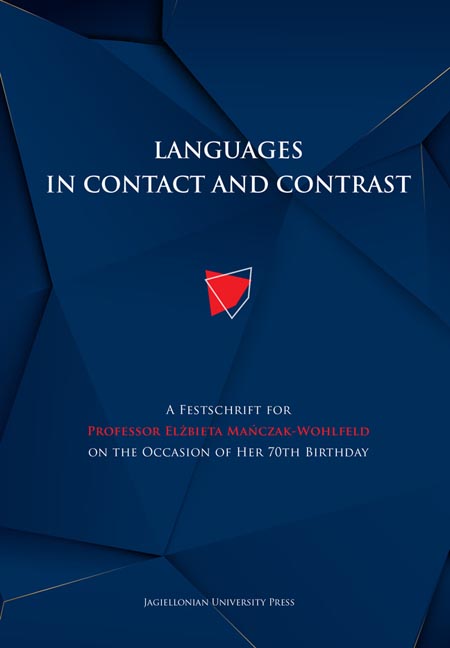 Languages in Contact and Contrast
Languages in Contact and Contrast Published online by Cambridge University Press: 14 October 2023
Introduction
While the process of lexeme borrowing is possibly the most salient aspect of contact-related language change, for example as documented over the years in Elżbieta Mańczak-Wohlfeld’s work for contact between English and Polish (see, e.g., Mańczak-Wohlfeld 1994, 1995, 2006), interesting questions arise also in the domain of structural change. In addition to direct borrowing of a grammatical structure, grammatical change can also be viewed as a consequence of one of two or more alternative structures available in a language gaining prominence, for example due to a shift in pragmatic effects associated with the alternatives (see Torres Cacoullos and Travis 2018 and references therein). As discussed extensively in Torres Cacoullos and Travis (2018), a case in point is the increase in use of overt pronominal subjects in so-called null subject (pro-drop) languages such as Spanish under the influence of a non-pro-drop language such as English. Generally speaking, languages of the former type allow for phonetically null arguments in certain environments, as in the Spanish example in (1), whereas languages of the latter type usually do not, as (2) illustrates.
A number of studies have investigated the question whether the use of non-pro-drop languages by bilinguals whose other language is a pro-drop language shifts the latter more towards the non-pro-drop pattern (see Torres Cacoullos and Travis 2018). One of the intriguing research areas within the field of contact-induced language change which have been viewed against this background is the expression of the past tense in Kashubian, which, officially, is a regional language of Poland. As I show in greater detail in Section 2, four options are available in the system for this purpose. The lexical verb appears either in the so-called l-participle form or the n/t-participle form. The type of variation of interest here is observed with respect to the (fusional) expression of the person and number features of the subject, which can be reflected in an overt pronoun, the auxiliary bëc ‘be’ or miec ‘have’, or a person/number clitic attached to the dummy element że. The focus of this paper is on the first of these past structures, as it is this option which is sometimes attributed to contact-induced change in the grammar of subject expression, in particular the contact between Kashubian and German.
To save this book to your Kindle, first ensure [email protected] is added to your Approved Personal Document E-mail List under your Personal Document Settings on the Manage Your Content and Devices page of your Amazon account. Then enter the ‘name’ part of your Kindle email address below. Find out more about saving to your Kindle.
Note you can select to save to either the @free.kindle.com or @kindle.com variations. ‘@free.kindle.com’ emails are free but can only be saved to your device when it is connected to wi-fi. ‘@kindle.com’ emails can be delivered even when you are not connected to wi-fi, but note that service fees apply.
Find out more about the Kindle Personal Document Service.
To save content items to your account, please confirm that you agree to abide by our usage policies. If this is the first time you use this feature, you will be asked to authorise Cambridge Core to connect with your account. Find out more about saving content to Dropbox.
To save content items to your account, please confirm that you agree to abide by our usage policies. If this is the first time you use this feature, you will be asked to authorise Cambridge Core to connect with your account. Find out more about saving content to Google Drive.